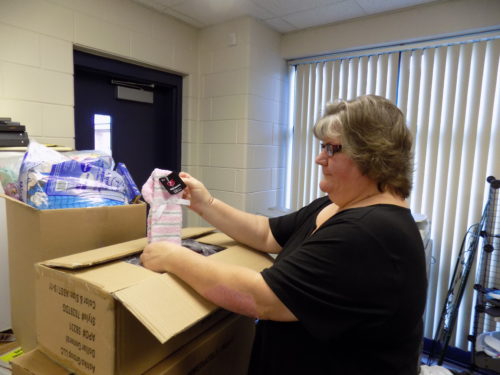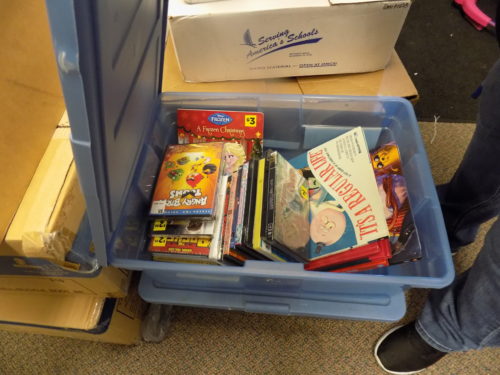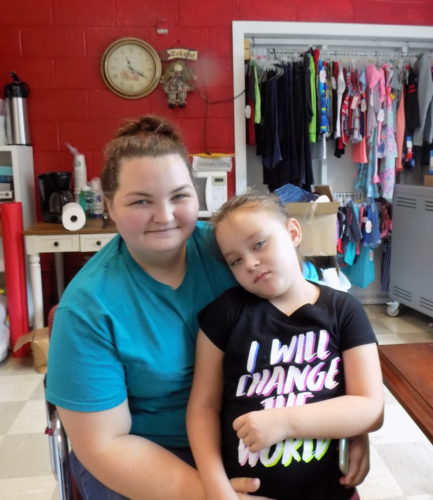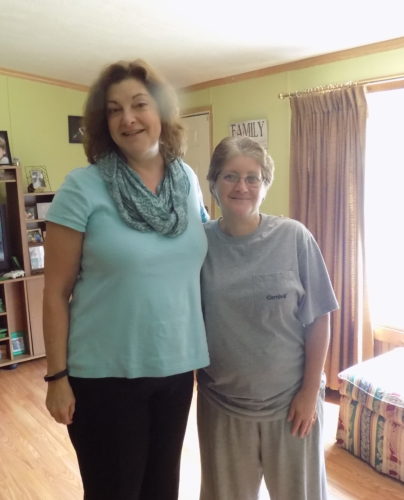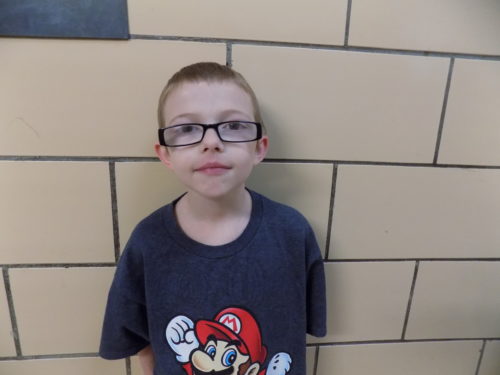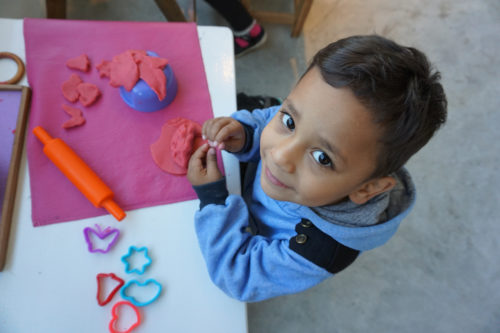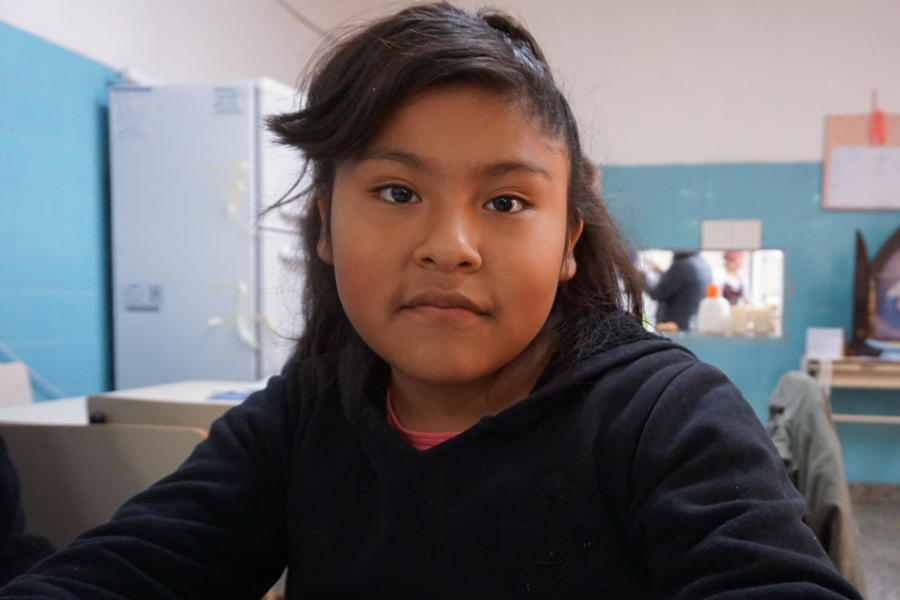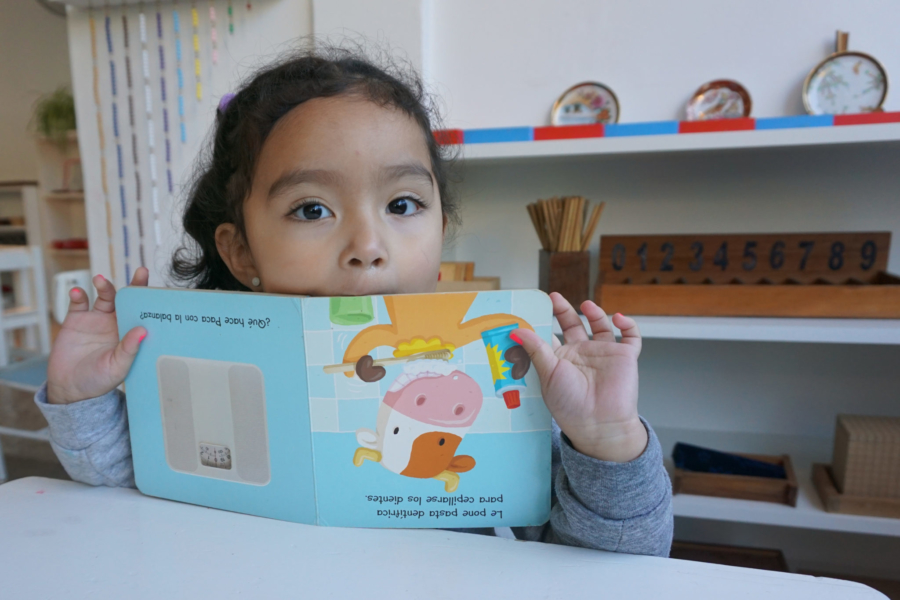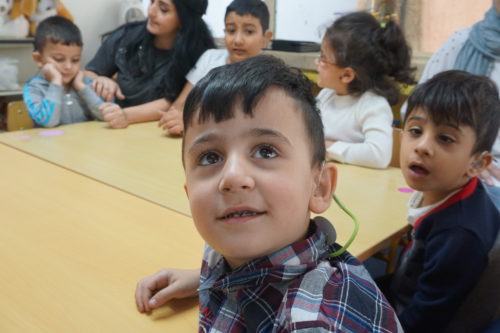Cordia Combined School is in Knott County, in the heart of the rugged wilderness of eastern Kentucky. Despite its beauty and proud history, this region suffers economic troubles that result in widespread poverty and deprivation for many families.
Industries such as coal-mining and lumber — once mainstays for employment in Knott County — have dramatically declined, increasing unemployment.
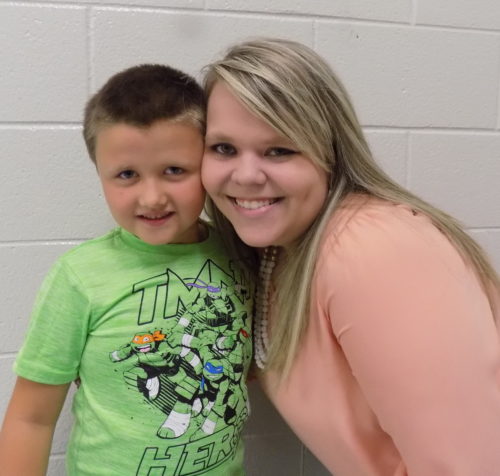
Jadea with one of our sponsored children at Cordia Combined School
Furthermore, due to this region’s remoteness, inaccessibility and small population, new job development is rare. Within the pockets of impoverished areas scattered throughout the hollows of Knott County, many complex social barriers limit the educational opportunities for its children.
However, our affiliated project, Cordia Combined School, is one of the few places in this economically-troubled region that can offer hope to children living in poverty through a well-rounded and stimulating education.
Children are not only supported by the school’s Family Resource Center, but also receive loving care from our volunteer coordinator, Jadea — who is a former sponsored child and beneficiary of our Higher Education Program.
Jadea’s story
After graduating from Morehead State University with support from Children Incorporated, Jadea returned to Knott County and got a job as a substitute teacher and teacher’s aide. Later, she applied for the position as Family Resource Youth Services Coordinator at Cordia Combined School.
Children are not only supported by the school’s Family Resource Center, but also receive loving care from our volunteer coordinator, Jadea — who is a former sponsored child and beneficiary of our Higher Education Program.
“She has been an excellent coordinator for our program. We are so proud that she benefited from the support she received from Children Incorporated and her sponsor and is now in a position to give back to children in her community,” said Renée Kube, our Director of U.S. Programs.
Special sponsored kids
On a recent trip to meet with Jadea at Cordia, Jadea introduced Renée to two special students — Jordan*, who is currently waiting for a sponsor and Alexandra, who has had a sponsor for ten years.
Jadea explained to Renée that Jordan — who is in the first grade — is the youngest in his family. He has two older sisters. His father works on cars, but his employment is unsteady. His mother has a part-time job as a cook in the school cafeteria. Jordan’s parents’ combined pay is meager.
While they chatted, Jadea told Jordan about what our program would mean for him, and he expressed his excitement to Renée about how he would love to have a sponsor.
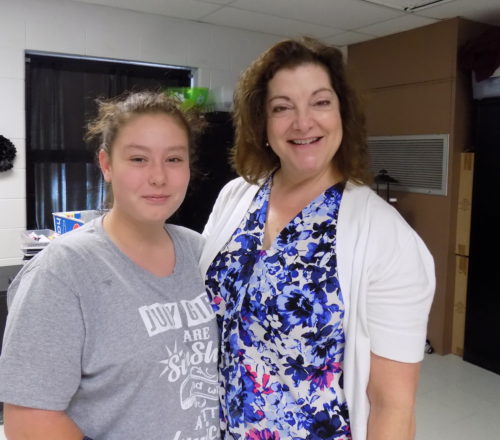
Renée pictured with Alexandra
After Jordan returned to class, Renée met Alexandra. Alexandra is seventeen years old and has been in the Children Incorporated program since 2009. She told Renée that over the years, support from her sponsors has helped her family a great deal.
Alexandra is the middle child of five girls. Her mom is a homemaker, and her dad drives a truck. Her parents have had a hard time providing for their daughters. Alexandra said that it was always nice knowing that because of her sponsor she wouldn’t have to worry about whether or not she would get new clothes, shoes or the school supplies she needed throughout the year.
***
HOW DO I SPONSOR A CHILD IN KENTUCKY?
You can sponsor a child in Kentucky in one of two ways: call our office at 1-800-538-5381 and speak with one of our staff members, or email us at sponsorship@children-inc.org.

